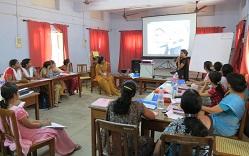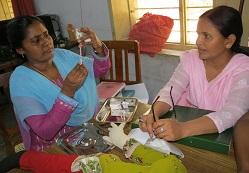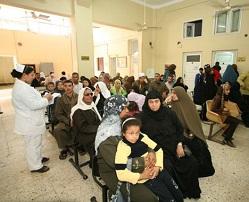Courses
Details on the core courses available to you during this programme.
Year One Courses
Foundations of Family Medicine

This course establishes a common understanding of the unique features of Family Medicine, through the collaborative development of a community of learning.
The course will begin by exploring the history of Family Medicine and development of the core concepts of the specialty through examining key papers in the field. Students will be gradually introduced to basic consultation skills and evidence based medicine in relation to their clinical practice.
Finally, students will collectively examine global health challenges that can be addressed through strong Family Medicine and Primary Care.
Applied Principles of Family Medicine
This course will support practitioners to develop person-centred care pathways integrating principles of evidence based practice and effective consultations within Family Medicine.
This course will build on the introduction to evidence based medicine and consultations skills in Foundations of Family Medicine. Students will be taught advanced skills in both these areas with an emphasis on the application to clinical practice.
Professionalism in Family Practice

This course will enable students to consolidate the principles of Family Medicine in professional practice in order to become highly skilled reflective practitioners.
This course naturally builds upon the learning in Foundations of Family Medicine and Applied Principles of Family Medicine by introducing concepts of professionalism in Family Practice. The course will better enable the students to deal with complex clinical and professional scenarios.
This course will create Family Doctors who can take responsibility for their own personal and professional development as well as establishing and maintaining quality in their clinical practice.
Year Two Courses
Family Medicine Approach to Child and Maternal Health
The course teaches the clinical knowledge required for diagnosing, and managing relevant conditions with particular emphasis on resource poor primary care settings. It will go on to discuss how maternity and child health services can be effectively managed and monitored in a community setting. Students will be taught about basic services that can be delivered by the primary health care team and how to appropriately use secondary and tertiary care. Throughout the course activities there will also be an emphasis on the role of Family Medicine in leading to improvements in outcomes in maternal and child heath on an international level.
Family Medicine Approach to NCDs
This course will focus on non-communicable disease (NCD). These are conditions that are increasing in prevalence, particularly in low and middle income countries. There is now greater emphasis on the role of primary care (and Family Medicine as a component of this) in tackling increasing burden of NCD.
The course teaches the clinical knowledge required for diagnosing, and managing the following conditions with particular emphasis on resource poor primary care setting - hypertension, cardiovascular disease, cerebrovascular disease, diabetes, obesity, chronic respiratory conditions and chronic neurological conditions. Students will be able to recognise and manage common problems as well as managing complex multi morbidity and polypharmacy. They will be taught when they need to access the wider resources available to them and when to appropriately refer to specialist care.

Family Medicine Approach to Complex Needs
The focus of this course will be on the role of Family Medicine in delivering healthcare to groups of patients with specific health care needs, including mental health, adolescent health, men’s health, care of the elderly and palliative care. These are areas that may at times be neglected, but where Family Doctors have been identified as having an important role.
The course teaches the clinical knowledge required for diagnosing and managing relevant conditions with particular emphasis on resource poor primary care setting. It will go on to discuss health services can be effectively managed to improve health outcomes in the chosen groups of patients. Students will be taught about how to evaluate such services as delivered by the primary health care team and how to appropriately use secondary and tertiary care. Discussions on the medic-legal and ethical aspects of care will be included.
Year Three Courses
In place of the traditional Masters dissertation we have split the final year of study in to a 10 week, 20 credit research methods course and a clinical research project. The idea is to better prepare and support our students, many of whom do not have any previous experience of research. The focus will be on imparting research skills that are useful in clinical practice, particularly in maintaining quality of care.
Family Medicine Research Methods
The research methods course will provide students with a grounding in basic research skills. This course will prepare students for the research project that will be carried out over the final months of the Masters degree.
Family Medicine Project
The project will provide the opportunity for students to apply the skills they have learned to carry out a piece of focused research which will impact clinical practice. This will normally involve carrying out a quality improvement project.
There are no written or practical examinations within the programme.

